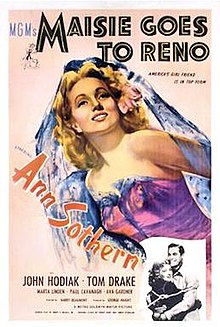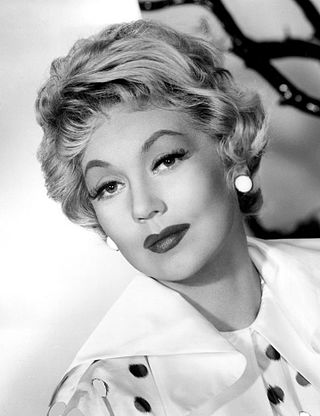
Ann Sothern was an American actress who worked on stage, radio, film, and television, in a career that spanned nearly six decades. Sothern began her career in the late 1920s in bit parts in films. In 1930, she made her Broadway stage debut and soon worked her way up to starring roles. In 1939, MGM cast her as Maisie Ravier, a brash yet lovable Brooklyn showgirl. The character proved to be popular and spawned a successful film series and a network radio series.

John Hodiak was an American actor who worked in radio, stage and film.

Kid Millions is a 1934 American musical film directed by Roy Del Ruth, produced by Samuel Goldwyn Productions, and starring Eddie Cantor. Its elaborate "Ice Cream Fantasy Finale" production number was filmed in three-strip Technicolor, one of the earliest uses of that process in a feature-length film.

The Motel Life (2006) is the debut novel by musician and writer Willy Vlautin. It tells the story of two brothers from Reno, Nevada, whose lives are thrown into turmoil following a tragic accident. It was made into a movie starring Emile Hirsch, Stephen Dorff, and Dakota Fanning, and released in November 2013.
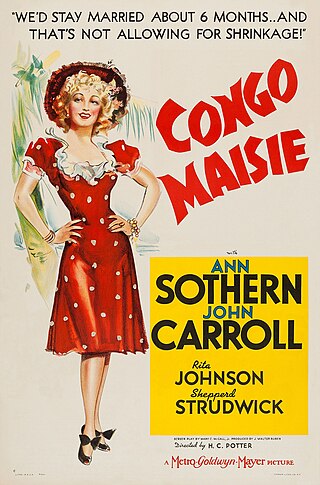
Maisie Ravier is a fictional character, best known as the leading character of ten American films (1939–1947), the Maisie films, and the radio show The Adventures of Maisie. In these, she was played by actress Ann Sothern.
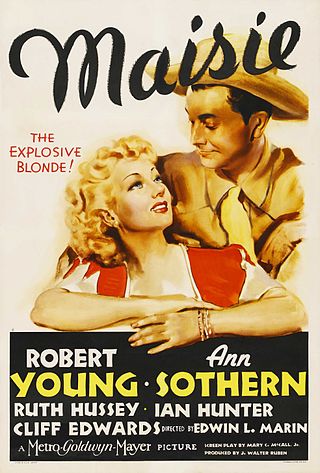
Maisie is a 1939 American comedy film directed by Edwin L. Marin based on the 1935 novel Dark Dame by Wilson Collison. The rights to the novel were originally purchased by MGM for a Jean Harlow film, but Harlow died in 1937 before a shooting script could be completed. The project was put on hold until 1939, when Ann Sothern was hired to star in the film with Robert Young as leading man.

Boots Malone is a 1952 American drama film directed by William Dieterle. It stars William Holden as a down-on-his-luck sports agent and Johnny Stewart as a rich runaway who wants to become a jockey.
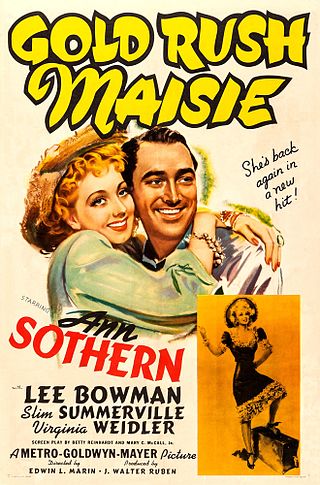
Gold Rush Maisie is a 1940 drama film, the third of ten films starring Ann Sothern as Maisie Ravier, a showgirl with a heart of gold. In this entry in the series, she joins a gold rush to a ghost town. The film was directed by Edwin L. Marin.

Divorce Me, Darling is a musical written by Sandy Wilson. Set 10 years after the events depicted in Wilson's much better-known The Boy Friend, it is a pastiche of 1930s musicals rather than the "Roaring Twenties" shows that inspired the earlier work.

Woman's World is a 1954 American Technicolor drama film about corporate America directed by Jean Negulesco and starring Clifton Webb, June Allyson, Van Heflin, Lauren Bacall, Fred MacMurray, Arlene Dahl and Cornel Wilde. The screenplay concerns three men who compete for the top job at a large company.
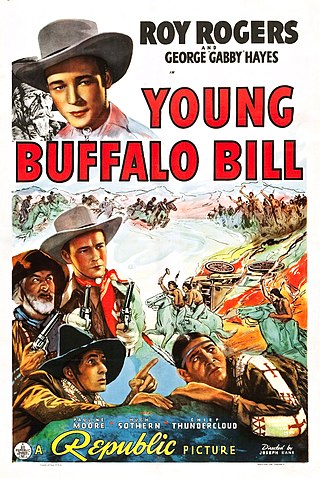
Young Buffalo Bill is a 1940 American Western film directed by Joseph Kane and starring Roy Rogers and George "Gabby" Hayes.
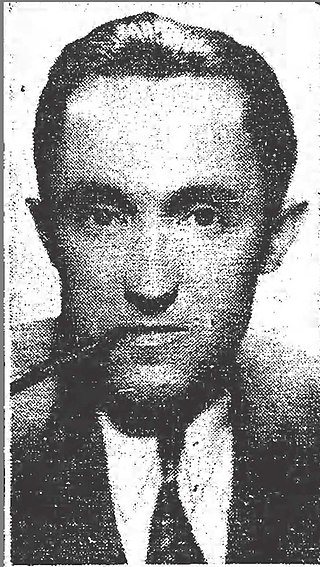
Wilson Collison was a writer and playwright.
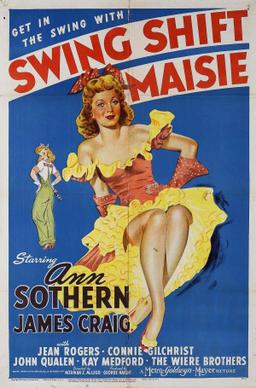
Swing Shift Maisie is a 1943 romantic comedy film directed by Norman Z. McLeod. It is the seventh in a series of 10 films starring Ann Sothern as Maisie, preceded by Maisie Gets Her Man (1942) and followed by Maisie Goes to Reno (1944). Her co-stars are James Craig and Jean Rogers.
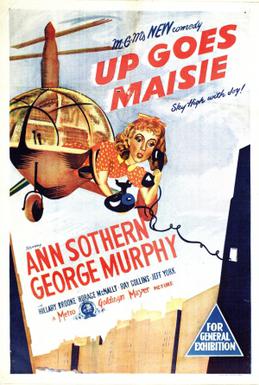
Up Goes Maisie is a 1946 American comedy film directed by Harry Beaumont. Produced by Metro-Goldwyn-Mayer, it is the ninth of 10 films starring Ann Sothern as ex-showgirl Maisie Ravier, characterized as "that double trouble doll with the sassy chassis." At nearly 40 years old, it was clear that both Sothern and the series was "winding down". In this series entry, Maisie, "the peppery lady with a golden heart" goes to work for an inventor and helicopter operator played by George Murphy.

Undercover Maisie is a 1947 American comedy film directed by Harry Beaumont and starring Ann Sothern, Barry Nelson, and Mark Daniels. It was produced by Metro-Goldwyn-Mayer, the final film of the ten film Maisie series starring Ann Sothern as ex-showgirl Maisie Ravier. In this series entry, Maisie Ravier decides to join the Los Angeles police force. The previous film was Up Goes Maisie.
"Flip Flop" is the 20th episode of the fourth season of the American sitcom Modern Family, and the series' 92nd episode overall. It was aired on April 10, 2013. The episode was written by Jeffrey Richman and Bill Wrubel and it was directed by Gail Mancuso.

Daredevil Drivers is a 1938 American crime film directed by B. Reeves Eason and written by Sherman L. Lowe. The film stars Beverly Roberts, Dick Purcell, Gloria Blondell, Gordon Oliver, Charley Foy and Donald Briggs. The film was released by Warner Bros. on February 12, 1938.

Affair in Reno is a 1957 American comedic crime adventure film directed by R. G. Springsteen from a screenplay by John K. Butler. The film stars John Lund, Doris Singleton, John Archer, Angela Greene and Alan Hale. The film was released on February 15, 1957 by Republic Pictures.
Harlem After Midnight (1934) is a black-and-white silent film directed by author and director Oscar Micheaux. A drama film, it featured an "all-colored cast". As in most of the films created by Micheaux there is an all-black casting for the drama film. It is a lost film.
